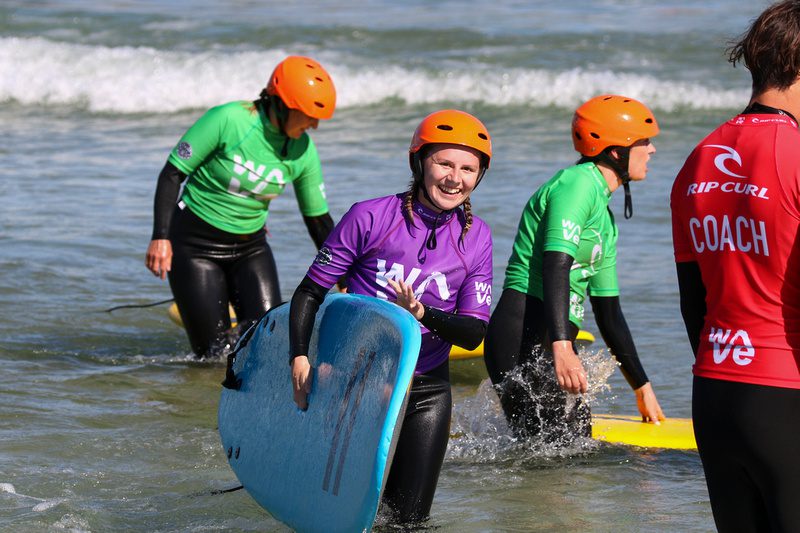As we enter the Christmas period, hospitality and gift-giving enter our minds. But we should think carefully about the nature of gifting, paying special attention to ethical and sustainable options.
The origin of gifts
Looking back in time, we can see that gifting has a long history we can learn from. There are some examples of entire cultures based around the freely given gift, or hospitality. Homer’s Odyssey, from the 8th century BC, was the first ‘adventure’ book in western literature and shows how important unconditional hospitality was to the ancient Greeks. If a stranger turned up at the door, you were obliged to offer him or her a bath, clean clothes, food, and a bed for the night. Looking now at our global cities’ homelessness problem, we can see that this tradition of hospitality has slipped for many.
‘Potlatch’ gifting ceremonies
In North American northwest Pacific coastal cultures, where salmon, building material and fuel from forests were abundant, a tradition developed of gift-giving where every tribe had extensive surplus and would hold ceremonies called the ‘potlatch’. Here, gifts were given to other, visiting coastal tribes. Because of the abundance of natural wealth, the potlatch gift-giving was a token gesture, because the tribe that received the gift would also have food and wood surplus to requirement. Tribes would simply receive just what they gave away. So, a bizarre tradition emerged. A tribe would hold a potlatch ceremony where rare goods (furs, axes, knives, trinkets, even canoes) were given to visitors. But they, in return, would be expected to invite their hosts back as guests at their potlatches, where the expectation was that the gift-giving would be more extravagant than the previous potlatch. And so a vicious cycle ensued in which tribes gave away more of their resources and wealth than they could afford, and the tribe who received this gift was not able to return the gift with interest. Soon, the whole system collapsed with acrimony leading to inter-tribal conflict.
So, gift-giving and the expectation surrounding it, can be toxic. We’ve all been in a position where somebody sent us a Christmas gift that we could not reciprocate, leaving us with a feeling of guilt instead of pleasure at receiving a freely given gift. So, the first rule of Christmas gift-giving and receiving is to cast off the chains of expected reciprocation. Lose the guilt and receive with pleasure. Why we give gifts at all at Christmas is bound up in most people’s minds with the three Kings bringing gifts of gold, frankincense, and myrrh for the birth of Jesus. Mary and Joseph, as poor people, could not reciprocate. The gifts were celebratory and not bound up with obligation. But this association of gift-giving with the birth of Jesus is far older than Christianity, going back to Homer and early Greek culture before the Trojan War in 12th century BC. Visiting the shrines of the Greek gods and goddesses demanded leaving a gift in their honour. This gift was not ‘personal’. It did not belong to Apollo or Aphrodite for example, but rather was a thanksgiving gift for the qualities bestowed upon humans of strength of character, the gift of passion, or forgiveness. The gift was, again, freely given.
How to gift sustainably this Christmas
As we enjoy Christmas we must then focus on ethical and sustainable gift-giving. Most of this is a no-brainer: don’t wrap presents and then toss aside the paper. Re-use paper if you must wrap. Careful unwrapping solves this dilemma. Do give recycled and recyclable gifts. For example, if you buy your kids bicycles, find ones passed on from others or re-conditioned. As one kid gets too big for his or her bike, the old bike can begin a new life with a new owner. Same with surfboards. As boards get more expensive and families have less to spend, think about second hand boards. Also search out eco-boards. Surfboards are made from various kinds of sustainable fast-growing woods such as paulownia, bamboo and balsa, hemp fibreglass (flax fibre cloth), agave cactus, algae oil and bio-based epoxy resin. Epoxy and carbon fibre surfboards, such as Thunderbolt Technologies, can present a more sustainable board due to their strength and longevity.
Gifts for the surfer
For a first time surfer, it’s not always best to buy an expensive board. It might be an unsuitable design, or just sit in the garage. Get an older board and clean it up. If you get the bug, then move on to something more sophisticated, and recycle your old board, don’t hoard them. Search out second-hand surfing books, vintage magazines, and clothing online to enjoy even more upcycling.
And when it comes to wetsuits, remember that neoprene is highly polluting. For kids, it’s difficult because they outgrow wetsuits so easily, so buy second hand or in the sales. As new wetsuits hit the market, look for suppliers discounting older brands. For adults, a decent wetsuit can last a while, so buy sustainability – invest in a good eco-suit made from Yulex (natural rubber). This will be a Christmas present that will last many years.
The importance of supporting eco-conscious businesses
So, what about the supply chain? Surfboard, skateboard, surf clothes, and wetsuit manufacturers must make a living. So, buy only from those who are making every effort to engage with sustainability and eco-conscious development. As we grow eco-conscious businesses, so less eco-conscious providers will be forced to re-think their business strategies. This Christmas, aim for sustainable gifting. Perhaps the best gift you can give is one back to the environment that sustains you. Do a beach clean. Protest against pollution. Send a donation to action groups like Surfers Against Sewage. Boycott unnecessary and polluting gifts. Surf clean and with a clear conscience. And remember that shared experience can be the greatest of all gifts, perhaps shared waves with friends for a seasonal shower of blue health.
